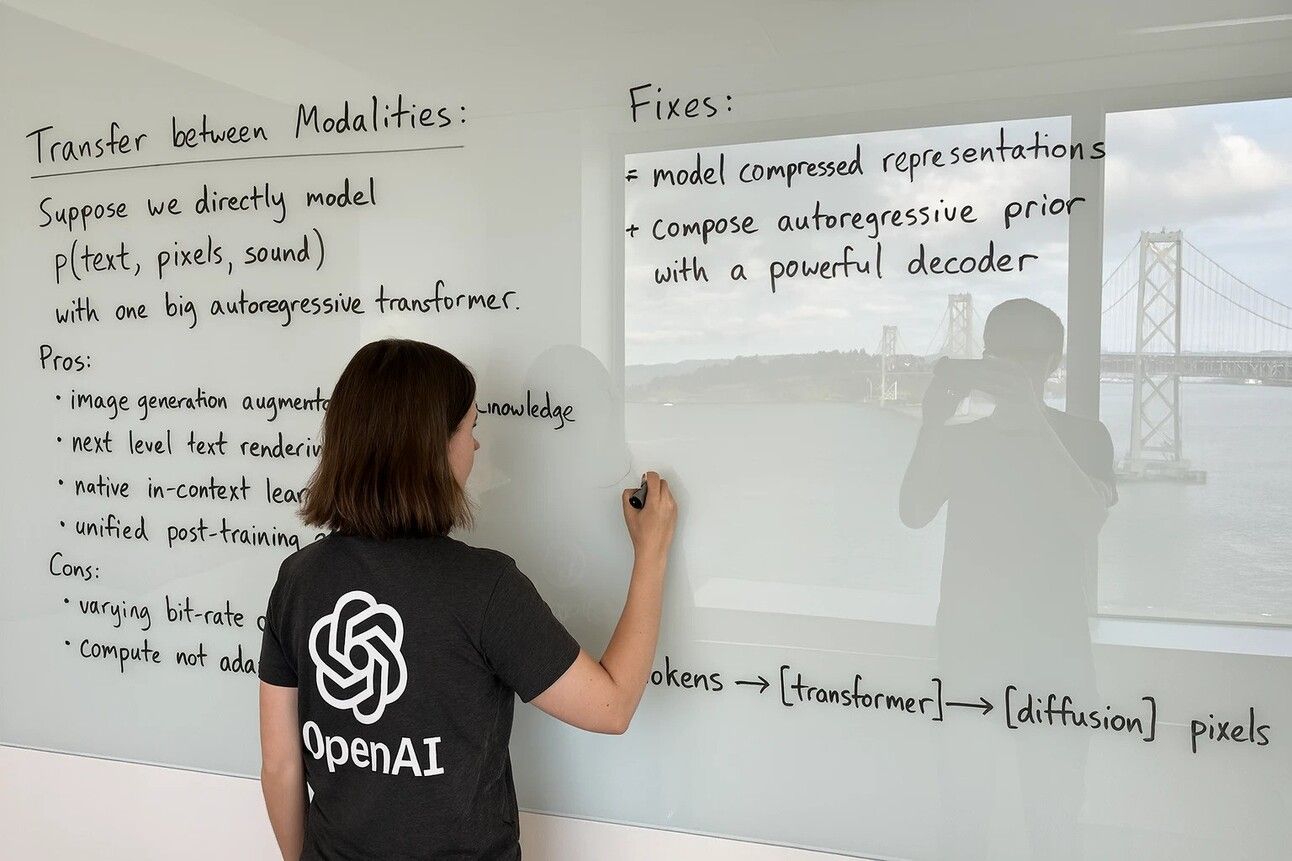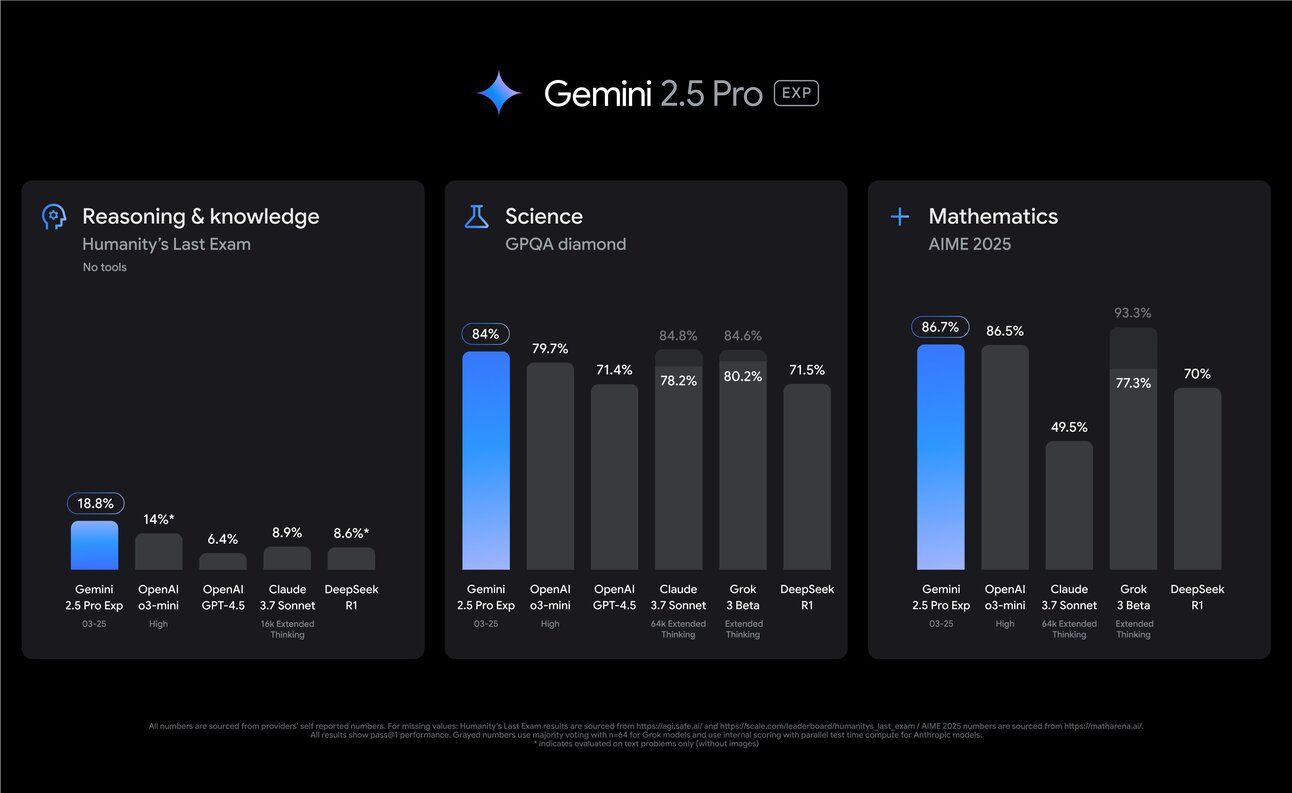- AI Weekly Insights
- Posts
- AI Weekly Insights #71
AI Weekly Insights #71
ChatGPT’s Art Upgrade, Gemini’s Brainpower, and Musk’s AI Takeover
Happy Sunday,
I am thrilled to bring you ‘AI Weekly Insights’ #71! This week, the AI world is buzzing: ChatGPT's image-generation feature received a dazzling upgrade, Gemini 2.5 emerged as Google's smartest model yet, Elon Musk announced that xAI has acquired X, and Microsoft has introduced the Researcher and Analyst agents to streamline your Copilot workflow!
Ready? Let’s dive in!
The Insights
For the Week of 03/23/25 - 03/29/25 (P.S. Click the story’s title for more information 😊):
What’s New: OpenAI has upgraded ChatGPT’s image creation and editing capabilities using the powerful GPT-4o model, replacing the older DALL-E technology.
Native Image Generation: The update replaces the older DALL-E model and produces much sharper and more realistic images. With GPT-4o, users can make images from scratch or edit pictures they already have, including ones that have real people. A big improvement is that the model can now generate clear and readable text inside images, something earlier versions struggled with. While the image creation takes a bit longer, the results are worth it for increased quality. GPT-4o was trained using a mix of publicly available and private data, and OpenAI gives artists a way to ask that their work be opted-out of training. The tool is currently available for paying plan users, with broader access for free users and via API expected soon.
Why It Matters: This shift turns ChatGPT into a very capable AI for generating images (and is behind the recent Studio Ghibli trend in AI images right now). Whether designing a concept or just playing around, this tool adds more ways to be creative. It could also change how people work in fields like advertising, education, or media by helping them make images quickly and easily. Importantly, OpenAI is also trying to handle concerns about using artists’ work without permission. By giving creators a choice to opt out, they’re showing that they want to be more responsible. As AI platforms race to integrate multimodal features, this upgrade keeps OpenAI ahead of competitors like Google’s Gemini. But users also need to think carefully about how they use this power. The next wave of digital art might not just be human-made, and that changes everything.

Image Credits: OpenAI

Image Credits: OpenAI
What's New: Google introduced Gemini 2.5, its most advanced AI yet, excelling in reasoning and problem-solving.
Better Problem-Solving: Gemini 2.5 takes AI brainpower to the next level. It’s built to think more clearly, solve harder problems, and make better decisions. That means it can handle everything from tricky math problems to understanding how different ideas connect. Google says the experimental version, Gemini 2.5 Pro, preformed well on advanced math and science benchmarks without needing any extra help at test time. It also knows its way around computer code, scoring solid results on various programming challenges. Plus, being multimodal means it can take in different types of info, like words, images, sounds, and video, and make sense of it all together.
Why it Matters: Gemini 2.5 isn't just faster or bigger, it’s smarter. This leap in reasoning puts Google in a stronger spot to power everything from smarter research tools to more intuitive software development. It could mean AI that helps solve real-world problems with more precision, from diagnosing issues in healthcare to debugging complex codebases. But with this power comes the usual caveats: ethical concerns like misuse of AI-generated content, job impacts from automation, and the need for transparency in how these models are trained and deployed. As AI tools like Gemini 2.5 get baked into our daily tech, making sure they're used responsibly is more important than ever. Still, it’s exciting to imagine what’s possible with the enhanced capabilities of newer models.

Image Credits: Google
What's New: Elon Musk’s AI startup, xAI, has officially acquired the social media platform X (formerly Twitter) in an all-stock deal that merges two of his biggest ventures.
AI Ambitions Meet Social Media: xAI, launched by Musk in 2023 to rival OpenAI, now controls X in a move that could reshape both companies. Valued at $80 billion for xAI and $33 billion for X, the merger brings X’s huge user base and massive archive of posts under xAI’s umbrella. This is essentially a goldmine for AI training data. This deal also creates a new parent company, xAI Holdings Corp, which could help Musk attract new investors more easily. It’s another step in fusing xAI’s tech with the X platform, where AI tools have already started rolling out. The goal? To fuel the development of more powerful AI using the steady stream of content that users generate every second.
Why it Matters: This merger isn’t just business, it’s a sign of where AI and social media are heading. By blending a social platform’s constant data flow with AI development, Musk is betting big on real-world content as the key to building smarter AI. That gives xAI a unique edge in the race against OpenAI and Google DeepMind. But there are red flags too: privacy concerns and questions about what happens when one person owns so many interconnected platforms. Still, if Musk pulls this off, it could lead to major breakthroughs in AI and change how we interact with social media altogether.

Image Credits: Reuters
What's New: Microsoft has added two new AI agents, Researcher and Analyst, to its 365 Copilot suite, giving users powerful new tools for turning data into strategy.
AI That Digs Deeper: These new features are designed to help teams work smarter by analyzing information across their internal tools and the web. Researcher taps into OpenAI’s research capabilities and connects with platforms like Salesforce and ServiceNow to generate high-level reports and strategic insights, like go-to-market plans. Analyst, built on OpenAI’s o3-mini model, is like having a data scientist on call. It can process raw numbers, forecast demand, and estimate revenue. It even writes Python code to perform complex tasks, and lets you check and tweak that code if needed. All this happens securely within the Microsoft 365 ecosystem, helping businesses move faster without compromising data.
Why it Matters: If you've ever waited days for a data report or struggled to turn scattered research into a clear plan, this update is for you. Microsoft is baking serious AI power into tools that millions already use every day, lowering the barrier to data-driven thinking. It’s not just about working faster, it’s about making insight-driven decisions accessible to more people, not just data scientists or strategy teams. The tools aren’t perfect, and they shouldn’t replace human expertise, but they can remove friction from the thinking process itself. This means better-informed meetings and fewer missed opportunities. In a world where decisions can’t wait, AI that helps everyone think more clearly and act faster might be the edge that sets businesses apart.
Thank you for diving into this week’s AI insights! As AI continues evolving rapidly, these conversations matter more than ever. Whether you're here for breakthroughs, debates, or sheer curiosity, your support means the world.
Let’s keep the discussions going, and as always…
Until next Sunday, stay curious and engaged!
Warm regards,
Kharee